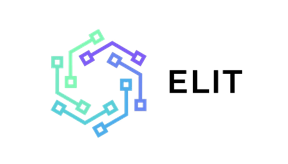SPECIALIZED GAME COMPUTER SYSTEM BASED ON ARDUINO UNO
Abstract
In this work a specialized game system based on the Arduino Uno microcontroller was designed. The concept of the indie project was developed, and the implementation in the form of interacting modules within the framework of a single system was also presented. The system consists of three interfaces that interact with each other and can be expanded in the future. The project has all the necessary characteristics of a computer system, which are divided into several sections. Necessary accompanying documentation with a detailed description of capabilities, characteristics of the system, etc., has been created. The developed concept, as well as the possibility of its comparison with existing developments, allow to determine its advantages, disadvantages and potential areas of improvement. Further implementation helped to better appreciate all stages of game development, as they were closer to reality.
Key words: indie-development, AAA-project, game controller, game concept.
Full Text:
PDFReferences
- Greitemeyer T. The dark and bright side of video game consumption: Effects of violent and prosocial video games / T. Greitemeyer // Current opinion in psychology. – 2022. – P. 101326.
- Yılmaz E. Comparison of children's social problem-solving skills who play videogames and traditional games: A cross-cultural study / E. Yılmaz, S. Yel, M. D. Griffiths // Computers & Education //2022. – Vol. 187. – P. 104548.
- Acquah E. Digital game-based L2 learning outcomes for primary through high-school students: A systematic literature review / E. O. Acquah, H. T. Katz // Computers & Education / 2020. – Vol. 143. – P. 103667.
- Vakaliuk T. A. Using game simulator Software Inc in the Software Engineering education / T. A. Vakaliuk, V. V. Kontsedailo, D. S. Antoniuk, O. V. Korotun, I. S. Mintii, A. V. Pikilnyak // arXiv preprint arXiv:2012.01127. – 2020.
- Hooshyar D. An adaptive educational computer game: Effects on students’ knowledge and learning attitude in computational thinking / D. Hooshyar, L. Malva, Y. Yang, M. Pedaste, M. Wang, H. Lim // Computers in Human Behavior. – 2021. – Vol. 114. – P. 106575.
- Bulut E. White masculinity, creative desires, and production ideology in video game development / E. Bulut // Games and Culture. – 2021. – Vol. 16(3). – P. 329-341.
- McDonald C. Describing, organizing, and maintaining video game development artifacts / C. McDonald, M. Schmalz, A. Monheim, S. Keating, K. Lewin, F. Cifaldi, J. H. Lee // Journal of the Association for Information Science and Technology. – 2021. – Vol. 72(5). – P. 540- 553.
- Chia A. The metaverse, but not the way you think: Game engines and automation beyond game development / A. Chia // Critical Studies in Media Communication. – 2022. – Vol. 39(3). – P. 191-200.
- Diachok R. Definition system of human body position in virtual reality / R. Diachok, H. Klym, I. Vasylchyshyn, I. Karbovnyk // IEEE 16th International Conference on Advanced Trends in Radioelectronics, Telecommunications and Computer Engineering (TCSET). – 2022. – P. 358-361.
- Tseng J. L. Interaction design in virtual reality game using Arduino sensors / J. L. Tseng, C. W. Chu // Simulation and Gaming. – 2018. – P. 111-127.
- Zhyvaha Y. Cost Efficient audio spectrum analyzer: design and study / Y. Zhyvaha, H. Klym, R. Dunets // 11th IEEE International Conference on Intelligent Data Acquisition and Advanced Computing Systems: Technology and Applications (IDAACS). – 2021. – Vol. 1. – P. 432-437.
- Zlatanov N. Arduino and open source computer hardware and software / Zlatanov, N. // J. Water, Sanit. Hyg. Dev. – 2021. – Vol. 10(11). – P. 1-8.
DOI: http://dx.doi.org/10.30970/eli.24.3
Refbacks
- There are currently no refbacks.

 Electronics and information technologies / Електроніка та інформаційні технології
Electronics and information technologies / Електроніка та інформаційні технології